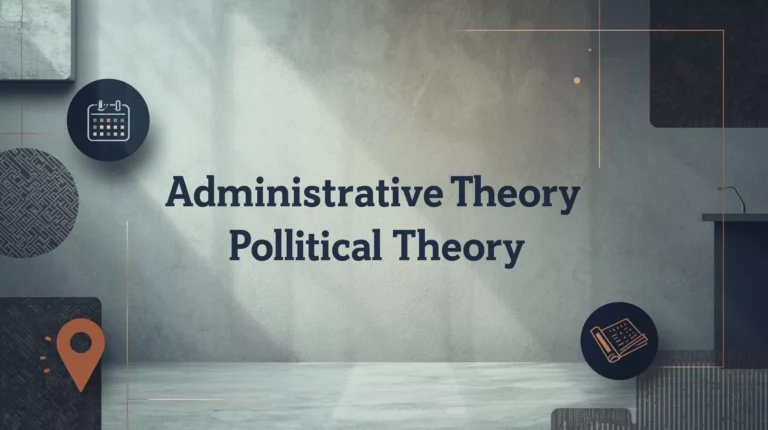Deontological Ethics Meaning, Theories | Advantages and weakness
Deontological Ethics
Introduction
The word deontology derives from the Greek words for duty and science. In ethical philosophy, deontology is one of the types of normative theories about which choices are morally necessary, prohibited, or permitted, in other words. Deontology falls within the realm of moral principles that guide and evaluate our choices about what we choose to do and also tell us what kind of person is or should be.
Deontological Theories
In contrast to consequentialist theories, deontological theories judge the morality of alternatives by criteria separate from the state of affairs about which they posit alternatives. It is commonly seen that deontologists combine non-consequential obligations with non-consequentialist permissions. That is, some actions may be right even if the best results are not maximized. The beginning of such actions is in some of their immediate parameters. The following are the major theories of Deontology:-
1. Agent-centered Deontological Theories
According to Agent Centered theory, we have both permissions and constraints which give us agentic reasons for action. An agent’s cause is an objective absolute cause, as well as an agent’s cause is social because it is a cause relative to the agent.
Thus an agentic obligation is an obligation for a particular agent to do or refuse to take some action and because it is agentic the obligation does not necessarily give someone else a reason to support that action.
At the heart of an agent, a theory is the idea of agency. Implicit here is the principle of moral pluralism, the idea that morality is intensely personal. In this sense, we are each attached to keeping our own morality in order. Our categorical obligation is not to focus on how we act or enable agents to do evil, rather our categorical obligation should focus on how we protect our agency from moral stress. to be kept free.
Agent Centered Deontology is an action not based on mental states. This can be thought of as the view that all human actions must arise from some sort of mental state. It is often seen in an ambitious form. So in this way, we can see its first principle under deontology which mainly focuses on the agent.
2. Patient-centered deontological theories
The second major theory under deontological moral theories is patient-centered, under which emphasis is placed on rights rather than duties.
The patient-centered theory is characterized primarily as a theory based on people’s rights. This presents an illustrative version that has authority at its core i.e. it is being used as a matter of authority only to produce or achieve good results without one’s consent. This principle refers to the consumption of another’s body, labor, and talent.
This principle is often referred to in the term Agent Neutral Reasoning. Every person has the right to the exclusive use of his body, labor, and talent. And such a right gives everyone an equal reason to act in a way that is respectful. But this aspect of patient-centered theory gives rise to a huge form of the paradox of sociology.
If this theory gives up the pretense of being agent-neutral, then this theory can do its work in a better way. He can conceive of rights as a factor to each actor, to prevent each actor from violating such rights.
Thus patient-centered is an arguably better reason than one that states the reason. Therein lies the agent, even in encountering, rather than ethical versions of, the paradox of such unquestioning transformations that agent-centered deontology entails.
So in this way, we can understand the second principle of deontology principles, under which mainly importance is given to right whereas, in the first principle, duty is given.
3. Contractarian deontological theories
The difference between agent-centered vs patient-centered theory under deontology theory is called Contractarian Deontological theory. Morally wrong acts are on such accounts i.e. those acts which would be prohibited by principles and which people in a social contract would accept or would be forbidden only by principles that such people could not reasonably reject.
Such an account is a first-order normative account, meaning that it is best considered a form of patient-centered deontology because the central obligation is to place only others for what they have consented to. But it is believed that modern constructivist accounts share problems that have long followed historical social contract theories.
In fact, modern contractualism appears to be formal, not normative. For example – Thomas Scanlon’s contractualism which is action at its core, presents the criteria by which we justify each other. Best regarded as an ontological and epistemological account of moral conceptions.
The advantages of deontological theories
Deontological ethics, in contrast to Consequentialism, leaves room for agents to give special concern to their families, friends, and projects, at least if there is no strong duty to the common good in deontological ethics or If it does, it supersedes the demands of that duty. That’s why deontological ethics avoids the overly demanding and alienating aspects of Consequentialism and is more in tune with our traditional sense of moral duty. Similarly, deontological ethics leave room for the supererogatory in contrast to most of the rights of Consequentialism. A deontologist may do more that is morally praiseworthy than what deontology demands.
None of these consequentialists can assume the consequentialist defensive maneuvers of the previously referenced work. For such a war or simple consequentialist, if an act is not morally demanded, then it is morally wrong and certain whereas, for the deontologist, there are actions that are neither morally wrong nor demanded.
Finally, deontological theories in contrast to consequentialist theories or have the ability to explain why some people have the standing to complain about moral duties and to hold those who violate moral duties. The weakness of
The weakness of deontological theories
Deontological theories Have your weak spots. To make the world morally worse appears to be the most irregular of our duties or permissions. The deontologist requires his own non-consequentialist model of rationality that is intuitively plausible.
Hence “Acttoproducethebest consequences” is a viable alternative to the model of rationality. which motivates the consequent theories. Until this is done the discontinuity will always be contradictory.
Second, it is certainly important for deontology to deal with the existing conflicts between certain duties and certain rights. Kat’s bold declaration is that “conflict of duties is unimaginable”.
The third is the manipulation concern mentioned earlier with respect to agent-centered which is somewhat alleviated by allowing the principle of double effect to conflict potential and then again opening up a potential for “avoision. “This kind of rise is to get the manipulation of the instrument experientially. Otherwise, would deontological ethics be prevented?
Fourth, what can be called the paradox of relative strictness is the paradox of assuming that all deontological duties are categorical and that consequences do not matter, and yet some such duties are more strict than others. A common view is that there cannot be degrees of wrongness with intrinsically wrong creations.
The fifth is situations, unfortunately, not all of them considered experiments where compliance with deontological norms would bring disastrous consequences.



